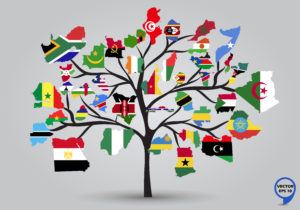A successful friend once encouraged me to reach out and connect with successful people who are doing what I want to be doing. He said that when many people reach the pinnacle of their careers, they want to help the next generation of promising leaders.
That advice stuck with me, mainly because I tested that theory and found it to be true. That is one major factor that led me to my current law firm five years ago, and why I am writing for the China Law Blog today.
Mentoring Reenergizes Mentors
I love mentoring students and aspiring young professionals. Whenever I feel emotionally drained by news about domestic politics, international events, or America’s youth, or when I’m stressed in my business or my personal life, I find rejuvenation in mentoring younger people.
I get excited when I talk to them, hear about their passions, and think together about their possibilities. At the end of our discussions, I come away less worried about the future. I trust and believe that each succeeding generation will see our shortcomings and improve on both our weaknesses and our strengths.
We Need to Maintain Bridges with China
However, I am also a data-driven pragmatist, especially regarding China. I am thrilled when I meet students who are studying Chinese. I am wowed every time I go to my son’s Chinese immersion school in Utah and speak Chinese with his classmates. Their eyes light up when they see a laowai (老外 – foreigner) speaking fluent Chinese.
I like to remind their parents that even though they (the parents) don’t speak Chinese, their investment in their children’s Chinese skills is important for our collective future. This is especially true when we consistently read about continued antagonism between China and the West (see US Set to Impose 100% Tariff on Chinese Electric Vehicles).
Weighing in with the Wall Street Journal
Recently, in her weekly Wall Street Journal China newsletter, Lingling Wei asked what areas of commonality the US and China have. She liked my response and reprinted a truncated version of it in her next newsletter, but I want to give my full response here, hopefully to sway any of you who may want to help maintain and build relationships between the West and China.
From my first experiences living in China in the early-mid 2000s (Hong Kong, then Sichuan), where I learned Cantonese and then Mandarin, I have seen myself as a bridge between the US and China. Now as a father of five children, I am concerned about the increasing language gaps on both sides of the world. On the China side, we have seen the de-privatization of the English tutoring industry and the deemphasis on learning English in Chinese schools.
On the US side, China is seen primarily as both a threat and an indispensable manufacturing hub. But it is no longer seen as a land of boundless opportunity. This means that US entrepreneurs and internationally minded US students are looking to other countries and languages. I see Southeast Asia, India, Latin America, and Africa as the biggest winners from this growing divide.
I realize many believe focusing on China is a losing proposition given the current political climate. They might point to intellectual property concerns, human rights issues, or the recent restrictions placed on foreign businesses in China. However, even with these challenges, complete disengagement hinders communication and understanding. Fostering cultural exchange programs and language learning initiatives, despite the difficulties, can pave the way for future collaboration and a more stable global landscape.
If the United States and China don’t emphasis teaching each other’s languages in schools and in other programs, the progress we’ve made in understanding each other’s cultures and languages will slowly disappear.
AI-enabled real-time translation will never replace the intellectual and emotional connections that occur when two people sit down together at the negotiation table or the restaurant table.
This is especially true when each person has spent years or decades dedicated to developing cross-cultural and linguistic understanding. Merely doing business together in a strained geopolitical environment is not enough. These connections need to be deeper.
Dual Language Immersion Schools are One Answer
The US may be unintentionally ceding the future of the US-China relationship to Utah, with its dedicated public-school focus on dual language immersion programs and the significant number of young missionaries from The Church of Jesus Christ of Latter-day Saints who, like me, accepted an assignment to learn Chinese in their late teens and live in-country. I learned to love and respect both the best qualities and the idiosyncrasies of the Chinese people, the culture, and the languages.
How many people in our rising generations will choose to study and then work in China, compared to past and current generations? The decline in US students studying in China has been shockingly steep, from approximately 11,000 pre-pandemic to approximately 200-300 today. Parents can help by pushing their children to learn Chinese and other crucial languages from their early years.
I want others to experience the increased richness that I have in my life by having taken on this significant challenge. It has been an extremely taxing undertaking at times, but I do not regret it at all.
Some of my friends see China primarily from a business perspective. Others see it primarily from a defense or national security perspective. Still others see China as a land desperately in need of leadership that believes it is beholden to a higher power. I don’t really care why you are interested in China, as long as you are interested in China. We need more people interested in China.
Integrating Local Initiatives into National and Global Strategies
Though local efforts like Utah’s dual language immersion programs are important standing alone, their real value stems from how they contribute to broader national and global strategies for diplomatic and cultural relations. These programs are not just educational novelties; they are critical for preparing the next generation for more nuanced international interactions. The United States benefits from such educational initiatives by cultivating a workforce that is not only bilingual but also biculturally competent, positioning America as a more effective and empathetic player on the world stage. Expanding the scope and support for dual language programs can be a strategic move in strengthening national security and international diplomacy.
The CCP isn’t Making This Any Easier, But We Shouldn’t Give Up
The CCP is doing its best doublespeak, encouraging foreign companies to continue to do business in China or come to China, while simultaneously making the country increasingly unattractive for foreigners to live, work, and do business.
But I have hope for the next generation. They need to understand that we need bridges to China of all types. If this strikes a chord with you, please reach out to me. I am happy to introduce you to my ever-growing network of internationalists who believe that the US, China, and every other nation are better off the more connected we are.
I’m not giving up.
For more reading, see:
How I Became an International Business Lawyer
What the Associated Press Got Right and Wrong About China’s Utah Influence Campaign
Some Hope for the Future After Meeting China’s #3 Diplomat in the US
A Reality Check and a Word of Encouragement to the Aspiring International Lawyer

























